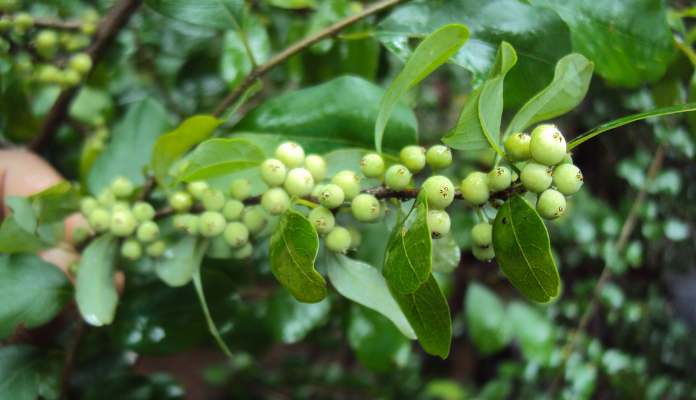Reverse Rheumatoid Arthritis With Ayurveda
Rheumatoid arthritis is a chronic, disabling autoimmune condition, as the body is tilled with ‘rheum’, a form of ama (toxins deposited in the cells as a result of improper digestion) characterised by inflammation, soreness and stiffness of muscles and pain in the joints and associated structures.
Amavata (Rheumatoid Arthritis)
Rheumatoid arthritis is described as ‘amavata’ in Ayurveda. The word ‘ama’ literally means undigested, toxic or unwholesome product which is produced in the body due to weakening of the digestive fire.
Symptoms
- Pain in specific areas of the body (Angamarda)
- Loss of appetite (Aruchi)
- Increased thirst (Trishna)
- Loss of zest or enthusiasm for life (A las ya)
- Increased body temperature (Jwara)
- Low agni (Apaka)
- Swelling of the joints (Sandhi shopha)
- Stiffness (Sandhi Stabdata)
- Inflammation (Sandhi Shoota)
Besides these symptoms, frequent urination, hyper salivation, nausea, and vomiting are some of the amavata symptoms that can affect specific individuals.
Other Symptoms
Although one of the commonly known problems of rheumatoid arthritis is joint problems, it may also be associated with other problems mentioned below:
Rheumatoid Nodules
These nodules are painless lumps that appear under the skin, It moves easily if touched and can be fixed to deeper tissues. Most often. it can be found on the elbow or on the underside of the forearm. Other places may be the Achilles tendon, base of the spine and other pressure points like the back of the head.
Inflammatory Conditions
Tissues can be inflamed for a variety of other symptoms produced by rheumatoid arthritis.
- Tissues lining the surroundings of your heart and chest cavity may get inflamed, causing a breathing difficulty.
- A lung inflammation may cause a dry cough and shortness of breath.
- Abnormality in nerve function causes tingling, numbness, and weakness.
- The white part of the eye may get inflamed, causing vision problems.
Diagnosis
A person with well-established rheumatoid arthritis typically has or had at least several of the following:
- Morning stiffness that lasts at least one hour and that has been present for at least six weeks.
- Swelling of three or more joints for at least six weeks.
- Swelling of the wrist, hand, or finger joints for at least six weeks.
- Swelling of the same joints on both sides of the body.
- Changes in hand x-rays that are characteristic of rheumatoid arthritis.
- Rheumatoid nodules on the skin.
- Blood tests positive for rheumatoid factor and/or anti-citrullinated peptide/protein antibodies.
Ayurvedic Management
Diet Or Ahara
Among the foods to be included in the diet is wet ginger, old rice, buttermilk, bitter gourd, wheat, and horse gram. Avoid consuming junk and oily food, dairy products, sour and salty foods, fish, ice cream, cold drinks black gram, sweets, and jaggery.
lifestyle Or Vihara
Avoid excessive wind and don’t bathe with cold water. Warm water should be used for bathing. Take a walk after eating and don’t drink water immediately after food.
Herbal Drugs Or Aushadhi
Guggulu (comiphora mukul) can be used for the treatment of amavata as it is regarded as one of the most effective drugs.
Herbal preparations of rasna (pluchealanceolata), ashwagandha (withania somniferous), pippali(long pepper), sunthi (ginger), gokshura (tribulus terrestris) and trivrut (operculina terpethum) are used when one suffers from amavata.
Castor oil can also be administered as an effective component for this disease. However, you will need to consult an Ayurveda physician before going through any treatment process.
Panchakarma Therapy
This is a purification process and by indulging in this therapy, the body toxins are eliminated from the body.
Treatment
(The treatment of amavata consists of the ten principles approach)
- Langhana
- Swedana
- Tikta-KatuAhara
- Deeparia
- Pacha na
- Snehana- Virechan
- Niruha Va sf1
- Upanaha Swedana (local)
- Aushadis (Medicines)
- Additional treatments according to predominant doshas of the disease.
Rheumatoid Arthritis And Joints
The same joints on both side of the body get affected by rheumatoid arthritis. In its initial stage, it affects only the small joints of the body like the joints of the fingers or toes. It may also start in the large joints like the shoulders or knees. As it progresses, inflammation of the large joints like hips or spine too can start troubling one. The following joints are affected:
Hands
Rheumatoid arthritis first affects the joints on the hands. When squeezed, the joints are tender and grip strength is reduced. It may also lead to swelling or redness of the entire hand.
Wrist
One of the commonly affected joints of rheumatoid arthritis is the wrist. In its early stage, one may face difficulties in bending the wrist.
Elbow
While rheumatoid arthritis affects the elbow joint, it causes swelling and compresses the nerves that makes one feel numbness.
Shoulder
The shoulders may get inflamed in the later stage causing pain in movement.
Foot
The joints of the foot are often affected by rheumatoid arthritis and consequently, a pain in the joints may trouble the affected person while walking.
Ankle
Inflammation on the ankles may lead to nerve damage.
Knees
When rheumatoid arthritis affects the knee, it causes swelling and makes it difficult to bend the knee. It also creates damage to the joining edge of the bones.
Hips
At the later stage of rheumatoid arthritis, the hips become inflamed and this makes walking difficult.
Cervical Spine
The effect of rheumatoid arthritis may spread to the cervical spine too, the area between the base of the head and shoulder. The inflammation may cause a stiff neck and inability to bend the neck.
